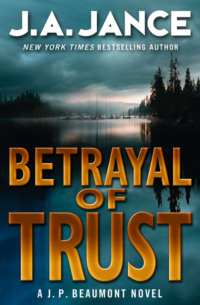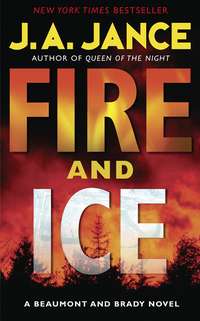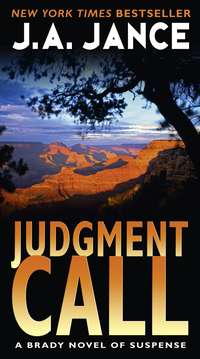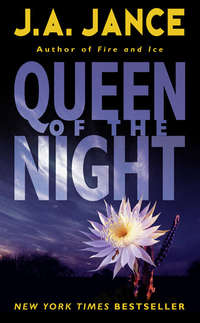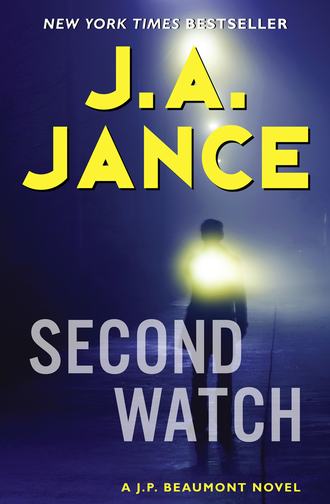
Полная версия
Second Watch
By late Sunday afternoon, while we were still tramping around in the blackberry bushes on Magnolia Bluff, Hannah and Eugene Wellington had driven over to Seattle from Leavenworth. They were doing a full-court press on local television news outlets pleading for information about their missing daughter. One of the guys in missing persons, David Larson, who was interviewed by a local reporter and who had seen a photo of the missing coed, happened to hear that Larry and Watty were investigating a possible homicide. David took it upon himself to bring a copy of the photo to the morgue.
By the time Doc Baker got the layer of grease washed off the body, it was clear that the girl in the photo matched the face of the victim. The Wellingtons were staying at a low-cost motel up on Aurora, and Watty was dispatched with the unenviable job of giving them the bad news that an unidentified body had been found and that there was a good chance the victim would turn out to be their daughter. Watty was also tasked with bringing the parents to the morgue to do the ID.
I didn’t know about any of this at the time because Mac and I were still too busy chowing down at Dick’s, but Watty told me much later that Eugene Wellington, all six feet six of him, wept like a baby, all the way from the motel to the morgue. Once there, he was the one who fainted dead away when it came time to identify the body. It was Hannah, the mother, all five feet two of her, who made the identification and then helped her sobbing, grieving giant of a husband out of the room.
As for Mac and me? We finished out our shift and our burgers and went home.
Back when Karen and I were in the market for our first house, Boeing was going through a world of hurt. That meant the local real estate market was in the toilet, which is how we’d lucked into and been able to afford our place on Lake Tapps.
The house was one of those Pan Abode manufactured homes, built of cut cedar logs and then put together elsewhere. Ours was one of the early models that had been built in the fifties. The original owner was halfway through a do-it-yourself remodel when he died of a heart attack. His widow blamed the house for doing him in and wanted nothing more to do with it.
That’s why we got the place for such a bargain-basement price, but some of the projects that were left unfinished by the previous owner remained unfinished on my watch, too, and that continued to be a big bone of contention between Karen and me. She had one little kid, was pregnant with another, and wanted things done yesterday. I spent all week working and didn’t want to spend my days off working on the house.
Lake Tapps is thirty-five miles south of Seattle. On a good day or late at night, I could get from downtown Seattle to the house in about forty minutes. During busy times of the day, the same trip could take an hour or longer. I used that time to decompress—to put the job away.
And that was how I used the drive that night. It was somewhere between the Public Safety Building and home that I finally realized what was wrong with the place where we found the barrel. There was no path there leading up the hill, no reason for the boys to have gone there. From the bottom to the top, the bluff had been covered with blackberry brambles. That realization brought me to a simple question: What had Donnie and Frankie been doing there?
It was an interesting question, but there wasn’t much to do about it right then. I was in my VW bug. If I called to talk to Larry or Watty about it, I’d have to make a long-distance call from our home phone. We weren’t dead broke, but with only one of us working, we were in a financial situation where pinching pennies was a necessity. Making unnecessary long-distance calls was not considered essential.
Monday and Tuesday were my regular days off. I figured the next time I went to work would be soon enough to broach that topic with the detectives. In the meantime, I did my best to put the Girl in the Barrel out of my head.
Monday was full of doctors’ appointments. Karen had a prenatal checkup. Scott needed to see his pediatrician for some vaccination or another. I had a choice: I could stay home by myself all day—never a good option in Karen’s book—or I could drive them both from one appointment to the next. So that’s what we did. By the time we got back home, Scotty was screaming his head off while Karen and I weren’t speaking. I chalked it up to a hormone malfunction and made the best of it. She went off to bed in a huff right after dinner. I poured myself a drink and then settled into my brand-new recliner to watch Rowan and Martin’s Laugh-In without ever making it to the Monday-night movie.
The next day I spent pretty much on my hands and knees trying to fix an intractable plumbing problem in the house’s sole bathroom. By the time Wednesday came around, I was more than happy to go back to work. When I got to roll call, I was surprised that Mac was nowhere to be seen.
“Where’s Rory MacPherson?” I asked Sergeant Rayburn when roll call was over. “If Mac’s not here, who am I supposed to ride with?”
“Go see Detective Watkins on the fifth floor,” he said.
“But where’s Mac?” I began.
“Moved over to Motorcycles. Now get your butt upstairs like I told you.”
Arguing with Sergeant Rayburn was never a good idea, so I got in the Public Safety Building’s disturbingly slow elevators and creaked my way to the fifth floor. It was a maze of gunmetal gray cubicles surrounding a center office where Captain Tommy Tompkins held sway.
The walls to Captain Tompkins’s office were made of glass, which, despite the closed door, made everything that went on in there pretty much an open book, hence the moniker the Fishbowl.
In this instance, Detectives Watkins and Powell were sitting like errant schoolboys in the principal’s office and being given a dressing-down. After asking a passerby for directions to Watty’s cubicle, I scurried off there and hid out. Word of Captain Tompkins’s incredibly foul temper had filtered throughout the building, even as far as Patrol. If he was reading someone the riot act, I didn’t want to be within range of the captain’s notoriously sharp-tongued verbal onslaughts.
When Watty appeared at the door of his cubicle a few minutes later, he took one look at me and shook his head. It was the kind of welcome look people dish out when a new arrival has not only stepped in fresh dog crap but also walked it into the house and onto the carpet.
“Great,” he grumbled. “Just what I need this morning—a baby detective, fresh from Patrol, for me to babysit.”
I didn’t quite get it. Yes, I had taken the exam for detective, and I’d done all right on it, too—my score had been in the midnineties. That counted as a respectable score, even if it wasn’t one that made you full of yourself. I had also been told there were currently no openings in Homicide, as in not a single one.
“I don’t know who you know or what kind of strings you pulled to make this happen,” Watty continued. “And having you dropped like a fifth wheel into an already ongoing homicide case doesn’t do anybody any favors. As of right now, you’re working days. Be here by eight on the dot. Got it?”
“Yes, sir.”
“You’ll go home when Detective Powell and I tell you you’re done for the day,” he continued. “We’ll give you a partner to work with when Larry and I say you’re ready to have a partner. In the meantime, you’ll be doing whatever grunt work we hand you. You will do it cheerfully, with zero complaints, starting by getting me coffee from downstairs—cream and three sugars. And by the time I see you again, I want you to ditch the damned uniform. Understood?”
I replied with another “Yes, sir.”
I wanted to tell him that I hadn’t pulled any strings—that I had no idea how this had happened, but I didn’t say any of that aloud. Instead, I went straight to the locker room and changed out of the uniform and into the jeans and grubby shirt I had worn in the car for my commute to and from Lake Tapps. I took a look at myself in the mirror and knew that outfit wasn’t going to pass muster.
Karen and I had established a charge account at a Seattle department store called the Bon Marché. We generally used that account to the limit at Christmastime. I hoped there was enough room back on our line of credit for me to buy a new shirt, a tie, and a pair of slacks. The guys in Homicide all dressed that way, and I figured I should, too, if I was going to fit in.
I raced out through the lobby, caught the first northbound bus on Third Avenue, and made for the Bon at Third and Pine. Since the trip was all inside the Metro’s newly established Magic Carpet zone, I didn’t have to pay a fare. Once inside the store, I dashed into the men’s department, grabbed up what I needed, changed into it in the dressing room, paid the bill, and then went racing for the next free southbound bus.
By the time I returned with Watty’s coffee, I was a new man, properly attired in slacks, shirt, tie, and sports jacket, and in my wallet was a receipt for an expenditure that was going to send Karen into a snit the moment the monthly bill arrived in the mail. The fact that I now had a promotion that came with a minuscule pay raise wasn’t going to change her mind about my reckless spending spree.
Watty looked me over as he took his coffee, then nodded in grudging approval. “Took you long enough,” he said. “Now how about getting to work?”
“Sure thing. What do you need me to do?”
“Go to the motor pool and check out a car. You drive. I’ll give you a lesson in doing homicide interviews.”
Our first stop was at Seattle Rendering, located in the Columbia City neighborhood. The plant was a sprawling redbrick warehouse in a collection of similar redbrick warehouses. On a wooden loading dock I spotted a dozen yellow fifty-gallon drums that were dead ringers for the one Donnie and Frankie Dodd had found on Magnolia Bluff.
Watty and I made our way up the stairs leading to the loading dock and then let ourselves inside. The smell hit me at once—the odor of stale grease, only this time without the underlying hint of a dead body. A bullnecked man with the name STEVE embroidered on the pocket of his blue coveralls cut us off before we made it three steps inside. He was a huge, rawboned guy with hands as big as platters. He looked as though he could have taken on both Watty and me at the same time without so much as breaking a sweat. His beaky nose had apparently been broken more than once, and he was missing several front teeth. Looking at the guy, I wondered how an opponent had ever managed to get close enough to land even one of those blows.
“You got an appointment?” Steve asked, barring our way.
Watty held up his badge. “We’re looking for the owner,” he said.
“Name’s Harlan Bates. He’s back in the office,” the guy said. “Follow me and I’ll take you there. He don’t like strangers wandering around out here unaccompanied.”
Harlan’s office was at the far back of the building, closed off from the rest of the warehouse by an unpainted plywood partition. Entry to the office was through a flimsy door with a single windowpane in it. As soon as our guide opened the door, a cloud of cigarette smoke flooded out into the warehouse. I hadn’t had a cigarette since before my hurried trip to the Bon, and I breathed in the welcome taste of secondhand smoke with no small amount of gratitude.
Harlan Bates appeared to be shorter and wider than Steve, but he shared the same general physique and facial features. I guessed the two men were either brothers or cousins.
Harlan sat at a scarred wooden desk under a flickering fluorescent bulb, poring over a handwritten ledger that was open before him. The desk was as grubby as the rest of the office. An immense overflowing ashtray sat stationed at the man’s elbow, while a burning cigarette was clamped between his lips.
Harlan gave Watty and me a hard-eyed once-over. “Who’s this, Stevie?” Harlan demanded, speaking through clenched teeth and without bothering to let go of his cigarette. “Salesmen of some kind? You know I don’t talk to salesmen before noon.”
“We’re not salesmen,” Watty interjected, holding up his badge. “We’d like to talk to you about barrel number 1432.”
There were two torn and scuzzy metal-and-vinyl chairs positioned in front of Harlan’s battered desk. Without waiting to be invited, Watty took a seat on one of them, and I followed suit with the other.
In response, Bates lowered the remains of his unfiltered cigarette from his mouth. Leaving a trail of ashes across both the ledger and the desk, he returned the smoldering butt to the ashtray and ground it out, spilling more ashes as he did so.
“What do you want to know about it?” he asked.
“Where was it last?”
Shaking his head in obvious irritation, Bates slammed shut the open ledger. Then, spinning around on his decrepit wooden chair, he returned the first book to a dusty shelf behind him and pulled out another. The second one looked very much like the first. He dropped it onto the desk and opened it.
Dampening his tobacco-stained fingers with spit, he thumbed through worn, yellowing pages that were covered with neatly handwritten columns. Finally settling on a single page, he pulled on a pair of reading glasses and peered at the page with studied concentration.
“Dragon’s Head Restaurant, in the International District,” Bates said. “We dropped off drum number 1432 on Tuesday two weeks ago. Chin Lee, the owner, called here yesterday, screaming and cussing me out in Chinese because his drum had gone missing. He thought I was trying to cheat him or something. I had to send my team by to drop off a replacement late last night. Who the hell would steal a drum full of stale grease? I mean, what’s the point?”
“And the owner’s name is Mr. Lee?” Watty asked.
Harlan Bates nodded.
“Phone number?”
“You speak Chinese?”
Watty shook his head.
“Having a phone number won’t do you any good. You need to go by and talk to him in person. Old man Lee doesn’t speak English real well. He’ll need his wife or one of his kids to translate for him.”
It was Watty’s turn to nod.
“Do yourself a favor,” Bates continued. “Try the Mandarin duck while you’re at it. Old man Lee may not speak much English, but when it comes to cooking, the guy’s a genius.”
“So you have people who drop off and collect the drums?” Watty asked. “How long before you get them back?”
“Depends on how much grease they use and how much they reuse, if you know what I mean. Places like the Dragon’s Head are on a two-week cycle. Saving grease is what my mother used to do during the war. She’d take her can of it in to the butcher and get rationing coupons in return. I was little then, but it made a big impression on me. I guess I never got over it, and here we are.”
Harlan Bates was maybe ten years older than me. By the time I was old enough to remember anything, rationing coupons from World War II were a part of the distant, unknowable past.
“They fill up the drum, then what?” Watty asked.
“You already met Stevie. He’s strong as an ox. He goes out on the route with another guy, my driver. The two of them make sure the drums are sealed shut, then they tip them over, roll them into our truck, and bring them back here for processing while leaving empty ones in place.”
“So where was Stevie on Friday night of last week?” Watty asked.
Harlan pulled a cigarette out of the almost empty pack in his pocket. If he’d offered me one, I would have taken it, but he didn’t.
“Look,” he said, taking the first draw. “You asked me about drum number 1432. I told you about drum number 1432. Now how about if you tell me what this is really all about?”
“Your drum was found at the base of Magnolia Bluff on Sunday evening,” Watty explained. “There was a dead girl mixed in with what was left of the grease. According to the M.E., she had been dead for about two days before she was found. The victim was last seen on Friday night when she left her dormitory at the University of Washington to go on a blind date.”
“So you’re thinking Steve’s the blind date?” Harlan Bates said with a harsh laugh. “Good luck with that.” He wasn’t the least bit upset about the question. In fact, a slow grin was spreading over his jowly face.
“Where was he?” Watty asked again.
“You ever hear the phrase ‘queer as a three-dollar bill’?” Harlan asked.
Watty nodded.
“Well, that’s Stevie for you. Doesn’t look like a pretty boy by any means. And people who think they can push him around for it generally don’t try that stunt a second time. But I’ll tell you for sure, my cousin Stevie wouldn’t be caught dead with a woman, and most especially not a coed from the University of Washington. He barely finished eighth grade.”
“I still need to know where he was on Friday.”
“Probably at home with my aunt Nelda and her cats, same as he is every night. Her place is over by the airport. He looks after her, but he wouldn’t be driving around late at night because he doesn’t have a license. Can’t read well enough to pass the test. So if you’re thinking he’d be out somewhere hanging out with a cute coed type, you’ve got another think coming.”
“What about the driver?”
“His name’s Manny Ortega, but I’m telling you, as far as Manny is concerned, it’s the same thing.”
“What do you mean the same thing?” Watty asked.
“Manny would be at home on Friday night and Saturday night, too, with Aunt Nelda and Stevie. She lives downstairs, they live upstairs.”
“Wait, Stevie and Manny are a couple?” Watty asked. Something about his professional Homicide demeanor had slipped. He looked more than a little shocked.
Harlan Bates shrugged. “Whatever turns them on, I suppose. Before those two guys got into AA, they used to have some hellacious fights. Now they’re both sober. Except for the occasional lovers’ spat, I couldn’t ask for a better team.”
Watty said nothing. He seemed to be concentrating on closing his notebook and putting away his pen. If there was an interview lesson for me in all this, I doubt it was the one he had intended.
“Anything else, gentlemen?” Harlan Bates asked.
“No,” Watty said quietly. “I believe we have everything we need at the moment.”
We went outside and got back into the car. Watty hadn’t told me where we were going next. I fired up the engine and a filtered Winston and sat there smoking with the car idling while Watty got on the radio. A few minutes later, the clerk in Records read off an address on Twenty-first Avenue South.
“That’s where we’re going?” I asked.
“Yup,” Watty said. “We’re going to go ask Harlan’s aunt Nelda a few questions before we interview Manny and Stevie.”
Tossing my half-smoked cigarette out the window, I turned and reached into the backseat for the ragged Thomas Guide, a dog-eared paperback collection of street maps for Seattle and King County that was standard equipment in every vehicle operated by Seattle PD back before the advent of GPS technology.
While we made our way south and west, Watty shook his head in dismay. “Just looking at that guy,” he said, “I never would have guessed.”
“Me, either,” I agreed. “Never in a million years.”
CHAPTER 5
The last thing I remembered, I had been lying awake, listening to the whispered murmurs of the mattress and the continuous motion of the passive-movement exercise machine and thinking about that long-ago time. I had no idea I had drifted off to sleep until good old Nurse Keith came hustling in to disturb my slumber yet again. It was still dark outside, but I saw the occasional flash of lightning in the window, accompanied by the low rumble of thunder.
“It’s been pouring for over an hour now,” he said. “I guess summer’s over.”
It was mind boggling to be transported across forty years in what seemed like the blink of an eye. In 1973 the very idea of a pair of guys living openly as a couple was enough to give even a seasoned homicide cop like Watty a bit of a pause. Back in those homophobic good old days, as far as most of us were concerned, the word “gay” had meant nothing more nor less daring than “happy.”
I also recalled that way back then most nurses had been women. They wore white uniforms and funny white caps with a black bar across the top. Keith’s colorful scrubs were a long way from that. First he took my vitals, and then he dealt with the surgical drains on both my incisions. I think he called them “pomegranates,” or some other kind of blood red fruit, but that could just be my random access memory being screwed up due to the drugs. I did notice that Keith was wearing what looked like a wedding band, which might or might not mean what it used to mean. However, since he was clearly good at his job, I didn’t ask about his personal life. It was none of my business.
I dozed again after Nurse Keith left, and it was probably the continuing rumble of thunder that took me back to that other time and place. When the next guy to come into the room was wearing a set of fatigues, I wasn’t even surprised. The fatigues weren’t the new desert-style BDUs that showed up sometime in the early eighties, but the old familiar olive green ones that we used back in ’Nam.
My new unexpected visitor walked over to the bedside table and pulled a deck of playing cards out of his pocket. He peeled off four cards and laid them out in front of me, facedown on the table next to my pitcher of water. I knew without looking that if I reached out and turned them over, they would all be aces of spades. I looked up and saw exactly what I expected: a crooked, chip-toothed grin; a handsome face; penetrating blue eyes; short blond hair. It may have been close to fifty years since I’d seen Second Lieutenant Lennie Davis last, but you never forget the face of the first guy who saved your life.
“Hey, asshole,” he said, grinning. “You got old.”
And you didn’t. That’s what I wanted to say, but of course I didn’t. When you’re in the presence of ghosts, even drug-induced ghosts, I don’t suppose it’s polite to point out that they’re dead and you’re not.
He turned and glanced around the room. “What’s this?” he asked. “And what’s wrong with you?”
“They fixed my knees. Replaced them.”
He gave me a quizzical arched-eyebrow look that would have passed muster with Star Trek’s Mr. Spock.
“With what?”
“Titanium.”
“No shit! They can do that now?” He shook his head in pure wonder.
The truth is, these days medical science can do a lot of things that they couldn’t back then. A lot of military folks, our wounded warriors, survive injuries that were fatal back in Vietnam. They not only survive, they return to serve again. Not Lieutenant Davis. Not Lennie D.
He walked away from my bed and stood looking out the window where, framed by neighboring buildings, the Space Needle was barely visible in the rain-blurred distance.
“I wanted to come to Seattle for the World’s Fair,” he said. “By then I was already at West Point. Never made it.”
Looking at him standing there, big as life, I felt a lump forming in my throat. He had been a smart guy. The first time I saw Lieutenant Davis, he was sitting outside his tent reading a grubby copy of The Rise and Fall of the Third Reich. I was new to C Company, and I wasn’t sure that having a bookworm for a platoon leader was necessarily a good idea. It was mid-July and hot as hell in the Pleiku highlands, hot and dusty.
“At ease, soldier,” he told me, once I introduced myself. About that time, he caught me looking questioningly at the book. “Ever read it?”
Reading books was always a chore for me. I only read for book reports, never for fun. The idea of spending an afternoon with a tome that looked as though it weighed in at well over a thousand pages wasn’t my idea of a good time. I shook my head.
“The bad guys lose eventually,” he said, “but it’s a hell of a fight to take them down. When we’re not out chasing Charlie, reading’s about the only thing there is to do here. I’ll be done with it this afternoon. I’ll be glad to let you give it a try.”


